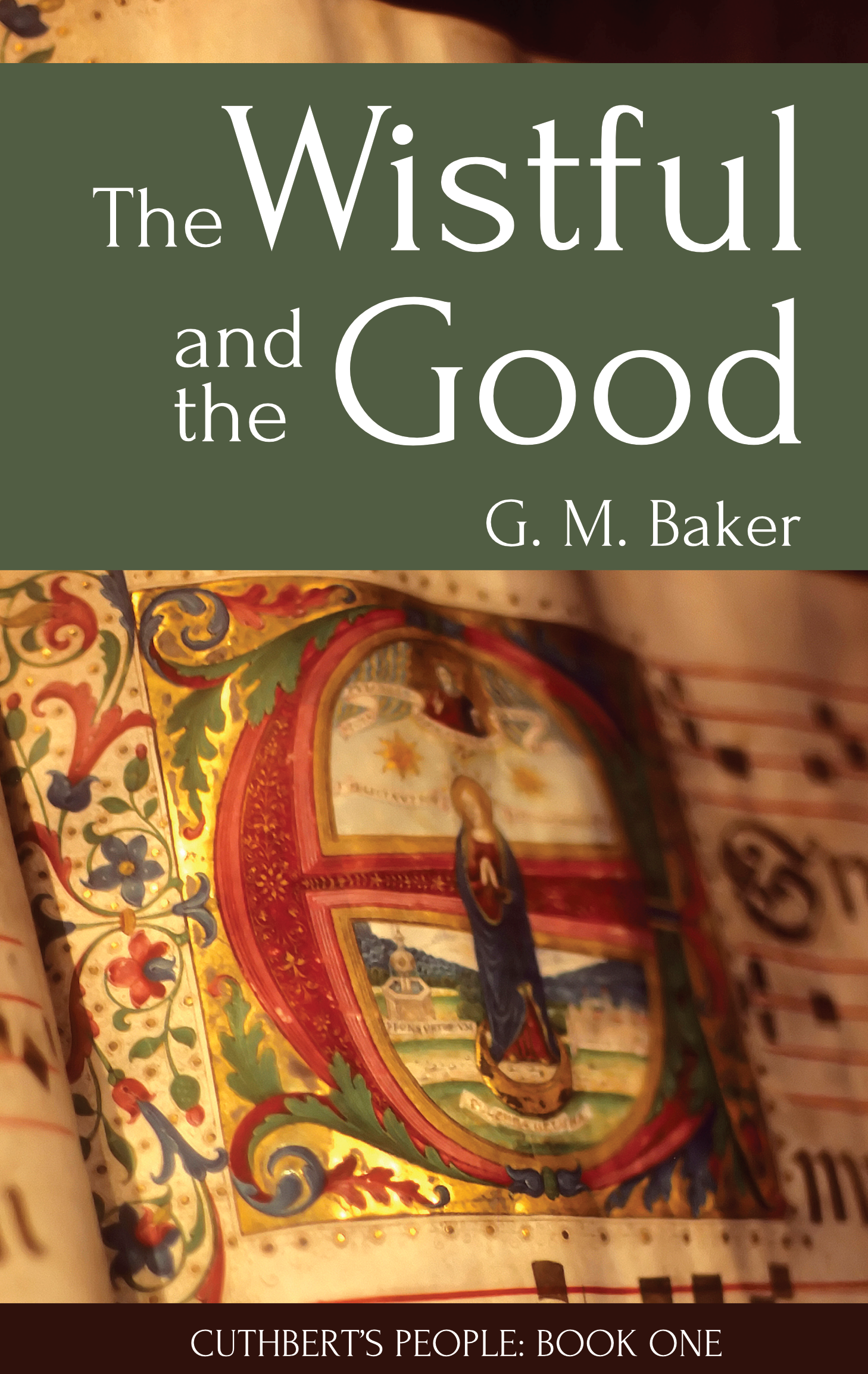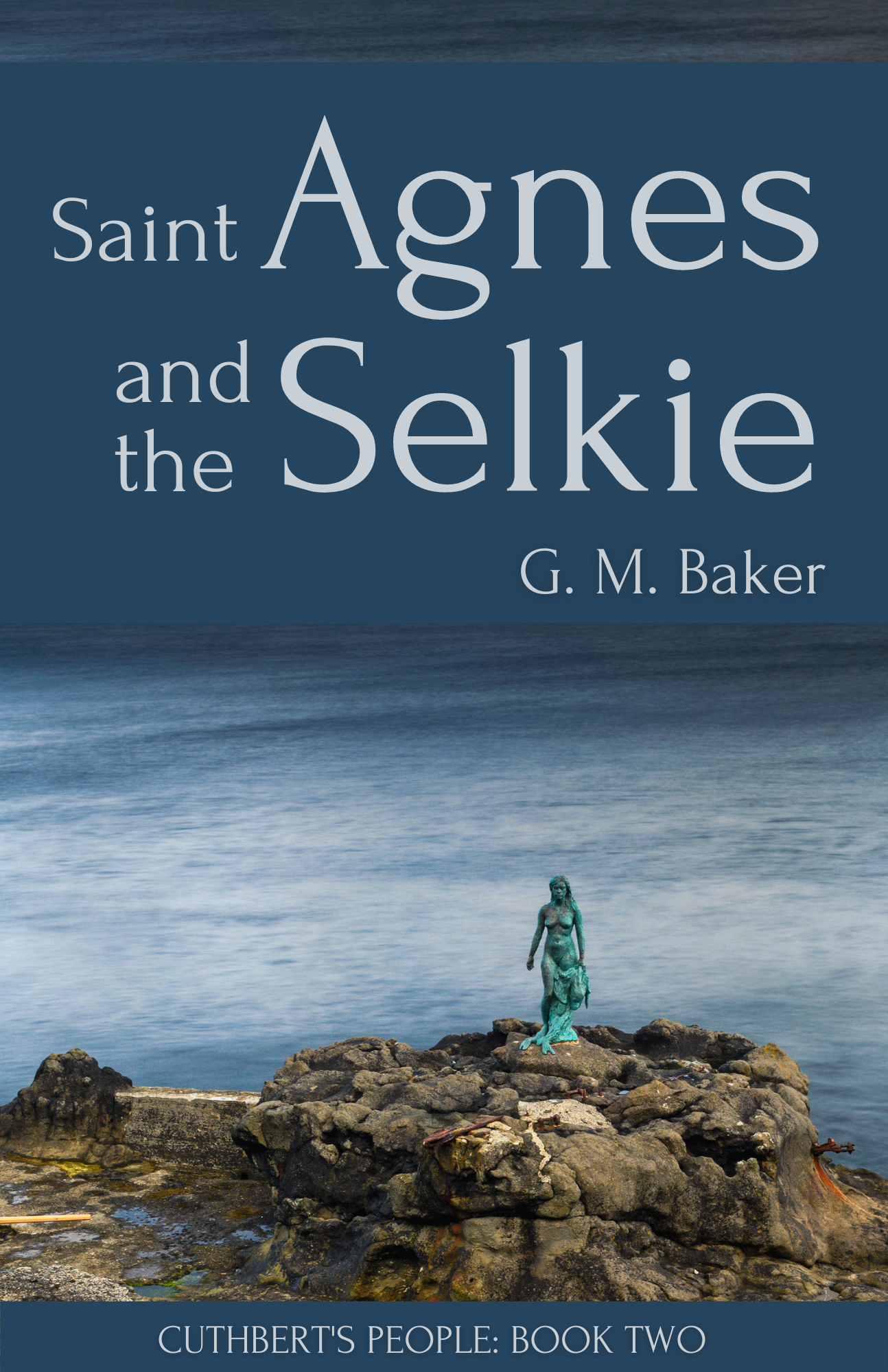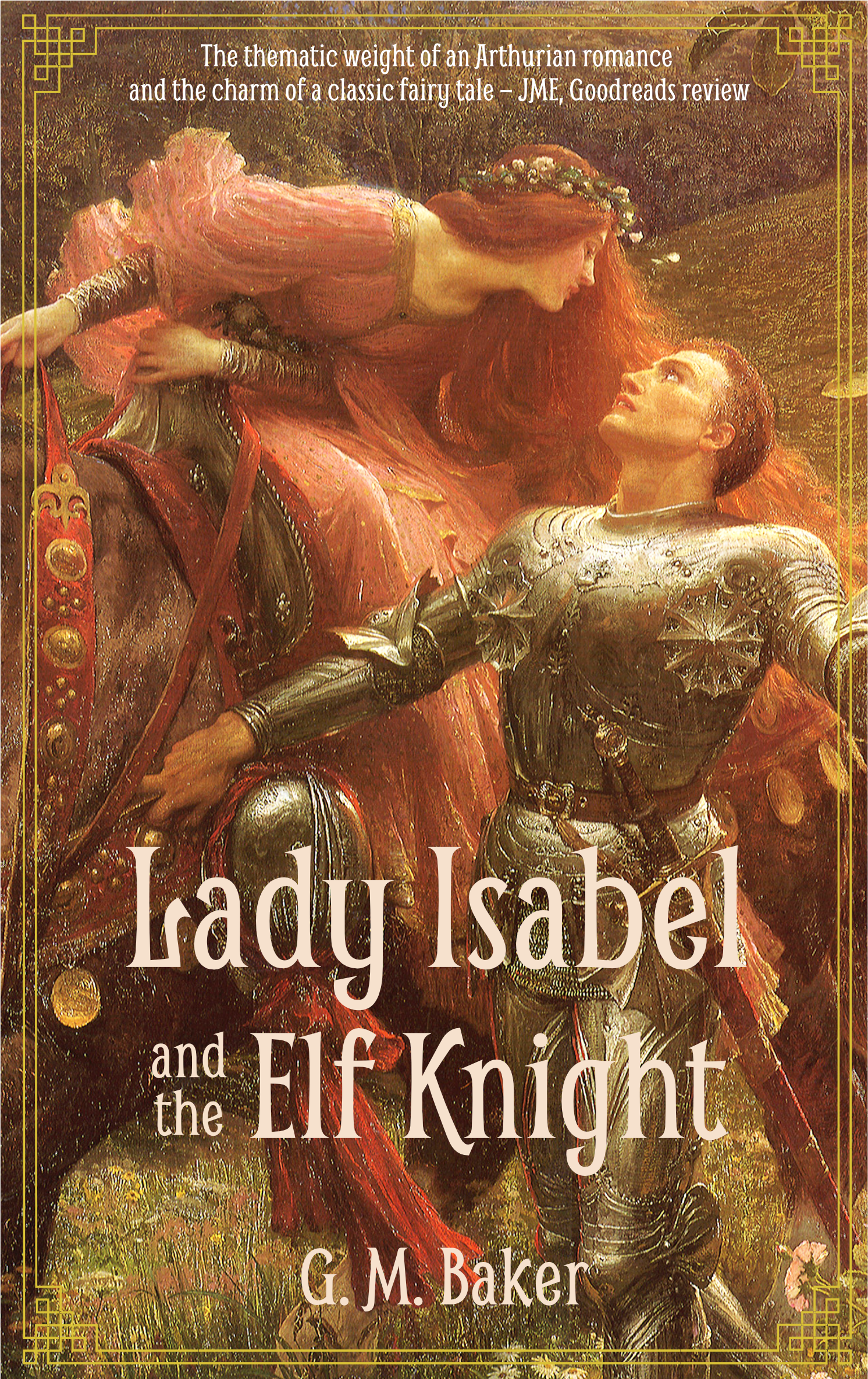
G. M. Baker - Author

Books
The Cuthbert's People Series (historical fiction)
The great Viking raid on the monastery of Lindisfarne in 793 was the 9-11 of the Anglo-Saxon age. Cuthbert’s People traces its impact on the lives of the wife and daughters of a Saxon thegn of the small coastal village of Twyford, a day’s ride south of Lindisfarne.
Edith was born a slave but seduced and married a thegn’s son and became lady of the manor. Her ambitions for her daughters go even higher and Elswyth, her eldest, is engaged to the son of an ealdorman and destined to host kings at her table. But Elswyth, who attracts affection from all who meet her, has a wistful heart, a love of the sea, and a dream of travelling to Spain.
Hilda, the next eldest, is quickly becoming the finest needlewoman in Northumbria. Hilda asks nothing of life but to be left alone with her needle. But Edith's ambition, and the repercussions of the Lindisfarne raid, will entangle each of them in the affairs of kings, abbesses, and Vikings.
Book 1 - The Wistful and the Good

"His prose is almost voluptuously rich" -- Historical Novel Society
Before the Vikings set foot on English soil, the Northern kingdom of Northumbria knew a golden age, an age of artists and poets, of scholars and saints. Elswyth of Twyford was the golden child of that golden age, blessed with beauty, charm, and a gift for entertaining and peace-making in the halls of great lords. Though her father’s name has never been heard in the counsel of kings, Elswyth is promised to an Ealdorman's son and will one day host kings at her table. But in the year of grace 793, the peace of Northumbria is shattered by the vicious Viking raid on its greatest jewel, the rich monastery of Lindisfarne. People ask if God himself has abandoned them, and great lords thirst for any chance to spill Norse blood. And Elswyth finds herself caught between old friends suddenly cast in the image of devils incarnate, and the lust for vengeance of the man she is to marry. One false step could lead to the loss of the promised marriage and the death or enslavement of people she loves, both English and Norse.
Book 2 - St. Agnes and the Selkie

"Beautiful prose, evocative descriptions and characters one cannot help but love—what more can one possibly want?" -- Historical Novel Society
Mother Wynflaed of Whitby Abbey rules a joint house of monks and nuns, and many layfolk besides. Her office forbids her to have favorites, but when a young woman appears on the doorstep, soaked from the sea and too terrified to speak her name, Wynflaed comes to see her not only as a potential postulant, but as a daughter. She names her Agnes, but before Agnes can become part of the community, Wynflaed must discover her secret.
Though Wynflaed finds it impossible to think ill of Agnes, Agnes herself keeps pulling down one penance after another on her head, as if trying to expiate some grave crime. As some in the abbey begin to fear her, Agnes becomes Wynflaed's obsession, upsetting the harmony of the abbey, and leading Wynflaed to question her own fitness to rule.
When Eardwulf, the young king of Northumbria, comes to Wynflaed seeking counsel, he too becomes infatuated with Agnes. As Wynflaed begins to unwind Agnes' secret, she realizes that Agnes is a danger to both the abbey and the king, and plans to send her away. But Eardwulf has other ideas, and Agnes has other admirers.
Book 3 - The Needle of Avocation

"Engagingly written with beautifully developed characters and a vividly depicted, well-researched historical backdrop, The Needle of Avocation is a little gem brimming with life and colour. And Hilda—well, who can possibly resist this serious, brutally honest but socially awkward teenager, who over the space of a week leaves childhood behind to blossom into a young but determined and brave woman? Not me! An absolutely wonderful read." -- Historical Novel Society
Hilda is the second sister, the plain one, the overlooked, the put upon. She is also the finest needlewoman in Northumbria, though she distrusts anyone who tells her so. Her mother, Edith, was born a slave and seduced and married a thegn's son, a fact which embarrasses Hilda greatly.
Edith has tricked the local ealdorman into betrothing his only son and heir, Anfaeld, to Hilda, an arrangement unwelcome to everyone but Edith, and particularly to Hilda who would rather retire to a nunnery and spend her life in embroidery.
It is Hilda’s right to refuse the marriage, but the future of her mother and sisters may depend on her making the match, a role that should have fallen to her enchanting older sister Elswyth, who was kidnapped by vikingar three years earlier.
On the way to her wedding, Hilda meets a heartbroken king, his petulant child bride, an abbess who wrestles with a great torment, and the shy young man she is supposed to marry.
Feeling herself mistreated by them all, including her prospective mother-in-law, Hilda resolves to refuse the marriage and become a nun. But first she must solve the double enigma of what really happened to Elswyth, and why Anfaeld himself has not refused the marriage.
Lady Isabel and the Elf Knight (fairytale retelling)

"Reads as though one of the darker Grimm’s Fairy Tales has been turned into a novel" -- Catholic Reads
Not every princess waits for the prince to save her. In the old Scotish Ballad Lady Isabel and the Elf Knight, Isable lulls the Elf Knight to sleep and kills him with his own sword. The novel picks up the story at this point as Isabel takes the Elf Knight's horse, sword, and horn, meaning to use them for good deeds.
But something old is waking in Isabel, something that longs for the gallop and the chase, for bright sun and the rush of wind against the cheek, for glimmering steel and bright blood and the dying of light in the eyes of the slain.
